ChemComm proves itself to be a truly international journal of exceptional standard
Abstract
Professor Roeland Nolte, the new Chairman of the ChemComm Editorial Board, reflects on the recent developments and the continuing high standards making ChemComm the journal of choice for reporting novel work to a wide audience.
ChemComm starts the new year reviewing our recent achievements and looking forward to the exciting developments to come.
The end of 2003 marked the end of Professor Andrew Holmes’s highly successful term as Chairman of the ChemComm Editorial Board. During his 4 year term we have seen a substantial increase inChemComm’s impact factor to its current value of 4.038 reflecting the high standard of published work, a redesign of the journal which has made it more attractive and easier to read, and a substantial reduction in our publication times. ChemComm is truly the journal for rapid publication of novel and exciting work in the chemical sciences. We thank Professor Holmes for his dedication to the development of the journal and for his support of the Editorial and Editorial Advisory Boards and the ChemComm staff over the last 4 years. We also thank retiring Board members Dr Frank Allen and Professor Wolfgang Hölderich for all their hard work during their terms of office. We welcome Dr Hans-Ulrich Blaser, Professor David Haddleton, and Professor Dr Ferdi Schüth as new Editorial Board members and look forward to their involvement with ChemComm. With this new team and the help and input of the dedicated ChemComm staff we hope to continue the excellent work of Professor Holmes and to further increase the strength and visibility of the journal, making it the most attractive medium to publish high quality research in the chemical sciences in the coming years.
2003 saw a continued investment in RSC Publishing with improvements to the E-submissions service for our authors ( www.rsc.org/submissions), a marked increase in the speed of our website, and crucially the production of the electronic RSC Journals Archive of all articles published by the RSC and its forerunner societies since 1841. This fully searchable archive ( www.rsc.org/archive) makes the full text of over 200,000 articles available electronically for the first time. A range of purchase options and delivery methods are available to suit budgets and technical requirements.
We consider all of our published papers to be Very Important Publications and our authors can expect to receive a fast, fair and professional service from our dedicated Associate Editors, Editorial staff and Technical Editors. Our publication times remain faster than our competitors, with the time from receipt to publication on the web as an Advance Article averaging ∼60 days. We recognise that it is not only our improvements to in-house practices which ensure that our publication times are rapid; we also rely heavily on our referees to provide their recommendations quickly. We are extremely grateful to them, not only for their rapid responses, but also for their dedication to maintaining and improving the very high standards of ChemComm. ChemComm publishes preliminary accounts of original and significant work with the urgency or impact to warrant rapid publication. We therefore encourage our authors to submit only their very best work to us.
One of the new services we have introduced this year is to highlight our “ hot papers” and to assist the authors in gaining promotion of their work in the wider scientific and general press. Details of our very best papers, as judged by our referees, are published on our website ( www.rsc.org/chemcomm) and we actively encourage highlighting of the work in science magazines and other appropriate publications. In an extension of this service to authors and readers, 2004 sees the launch of an exciting new RSC venture Chemical Science, the first issue of which appears in this issue of ChemComm. Chemical Science draws together the news and research highlights from all RSC publications and will appear monthly as a free supplement in the front of ChemComm and other RSC publications as well as online at www.rsc.org/chemicalscience
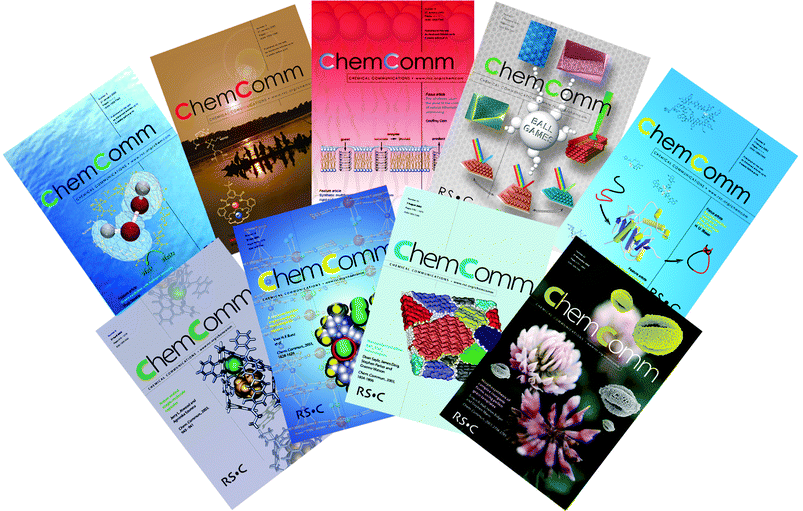 | ||
| Fig. 1 A selection of the attractive front cover and inside front cover designs in 2003. | ||
In addition to the excellent Communications and Feature Articles we will continue to publish the Focus section which we introduced at the end of 2002. Focus Articles are written by or about high profile researchers and highlight exciting and topical areas of research from a personal perspective. We are pleased in this issue to have a fascinating article focusing on the work of Stephen Mann in the field of biomineralisation.
The attractive front cover design is now extended to include the inside front cover which highlights a second article in the issue and we look forward to a continuing trend of striking images illustrating the very best advances in the chemical sciences. We will continue to offer our authors the free use of colour wherever scientifically necessary and to publish our contents pages in full colour. Most of our Communications are two pages in length but the use of a third page is permitted, after consideration by the referees and Managing Editor, if required to present the work clearly and this is proving increasingly popular.
ChemComm is a truly international journal with more than 80% of published Communications coming from outside the UK as shown in Fig. 2. Our Editorial Board and Editorial Advisory Board members not only represent the broad scope of chemical science published in ChemComm but also the diversity of nationalities of our authors, referees, and readership. Board members and Editorial staff will be attending many conferences and symposia worldwide in 2004 and we look forward to meeting more of you throughout the year. We also welcome comments and feedback via e-mail to chemcomm@rsc.org
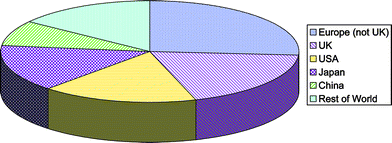 | ||
| Fig. 2 The chart shows the proportion of Communications accepted for publication in ChemComm between 24 November 2002 and 6 November 2003, displayed according to the country of the main author. | ||
On behalf of the Editorial Board, the Editorial Staff, and the Royal Society of Chemistry I wish you a very happy and successful 2004.
Roeland Nolte
Chairman,
ChemComm Editorial Board
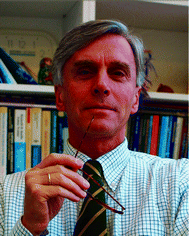 | ||
| Plate1 | ||
New members of the ChemComm Editorial Board
Dr Hans-Ulrich Blaser (Solvias AG, Switzerland)
Dr Blaser is Chief Technology Officer at Solvias. His major interest is the study and application of selective, especially enantioselective, catalysis for the manufacture of fine chemicals. During his industrial career he has developed and implemented numerous catalytic routes for agrochemicals, pharmaceuticals and fine chemicals both as project leader and section head.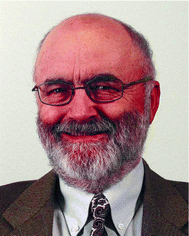 | ||
| Plate2 | ||
Professor David Haddleton (University of Warwick, UK)
The central theme of Professor Haddleton’s research is controlled polymerisation to give macromolecules of designed, desired and targeted structure. Work is directed to the synthesis of polymers one monomer at a time in an attempt to approach the degree of sophistication exhibited by natural polymers. An overriding aspect of all the work is the desire to produce polymers by commercially accessible processes for biosciences and materials applications.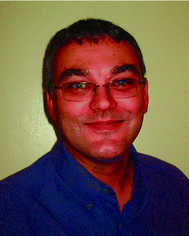 | ||
| Plate3 | ||
Professor Dr Ferdi Schüth (Max-Planck-Institut für Kohlenforschung, Mülheim, Germany)
The research in Prof. Dr. Schüth’s group focuses on fundamental studies of crystallization processes, synthesis of catalyst materials, catalysis, high throughput methods in catalysis, and porous and high surface area materials.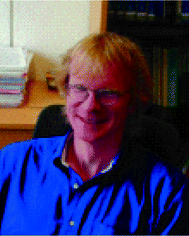 | ||
| Plate4 | ||
| This journal is © The Royal Society of Chemistry 2004 |
